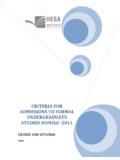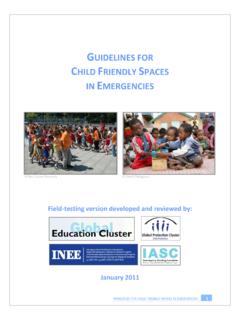Transcription of Definition and Application of Medical Necessity - …
1 POLICY 8. Definition and Application of Medical Necessity Medical Necessity is defined as accepted health care services and supplies provided by health care entities, appropriate to the evaluation and treatment of a disease, condition, illness or injury and consistent with the applicable standard of care. Appropriate Services and Supplies are those that are neither more nor less than what the patient requires at a specific point in time. 1. Determinations of Medical Necessity must adhere to the standard of care that applies to the actual direct care and treatment of the patient. 2. Medical Necessity is the standard terminology that all health care professionals and entities will use in the review process when determining if Medical care is appropriate and essential.
2 3. Determinations of Medical Necessity must reflect the efficient and cost-effective Application of patient care including, but not limited to, diagnostic testing, therapies (including activity restriction, after-care instructions and prescriptions), disability ratings, rehabilitating an illness, injury, disease or its associated symptoms, impairments or functional limitations, procedures, psychiatric care, levels of hospital care, extended care, long-term care, hospice care and home health care. 4. Determinations of Medical Necessity made in a concurrent review should include discussions with the attending provider as to the current Medical condition of the patient whenever possible.
3 A physician advisor/reviewer can make a positive determination regarding Medical Necessity without necessarily speaking with the treating provider if the advisor has enough available information to make an appropriate Medical decision. A physician advisor cannot decide to deny care as not medically necessary without speaking to the treating provider and these discussions must be clearly documented. 5. Determinations of Medical Necessity must be unrelated to payors' monetary benefit. 6. Determinations of Medical Necessity must always be made on a case-by-case basis consistent with the applicable standard of care and must be available for peer review.
4 7. Recommendations approving Medical Necessity may be made by a non-physician reviewer. Negative determinations for the initial review regarding Medical Necessity must be made by a physician advisor who has the clinical training to review the particular clinical problem (clinically matched) under review. A physician reviewer or advisor must not delegate his/her review decisions to a non-physician reviewer. 8. The process to be used in evaluating Medical Necessity should be made known to the patient. 9. All Medical review organizations involved in determining Medical Necessity shall have uniform, written procedures for appeals of negative determinations that services or supplies are not medically necessary.
5 (See Policy 7). References: Health Insurance Association of America. Code of Ethics. Washington, DC: Health Insurance Association of America, September 1995. Reagan ME. Medical review and the practice of medicine. Focus. Bethesda, Md: American College of Medical Quality, 1995, 5(1): 6. Lowry v. Henry Mayo Newhall Memorial Hospital, 185 Cal App 3d 188 (1986). An Overview of NCQA Standards. Washington, DC: National Committee for Quality Assurance, 1996. Hughes v. Blue Cross of Northern California, 215 Cal App 3d 832, 263 Cal Rptr 850 (1985). Available at: National Network Accreditation Standards. Washington, DC: The American Accreditation Health Care Commission, formerly the Utilization Review Accreditation Commission, April 1996.
6 Health Affairs; Prospects for Improved Decision Making about Medical Necessity ; Singer, Sara and Bergthold, Linda, 2007. Available at: http: Report of the Council of Medical Service; December 1999 Annuual Meeting of the House of Delegate: Resolution 724 Available at: Economic Grand Rounds: What is Psychiatric Medical Necessity ?; Fleshman, Martin, >,PhD.; 2000; American Psychiatric Association. Avialable at: National Health Law Program; June 18,2004; Washington, DC. Available at: Adopted by the Executive Committee, 12/5/92. Amendments adopted by the Board of Trustees, 11/13/97, 2/21/04, 2/17/10.




